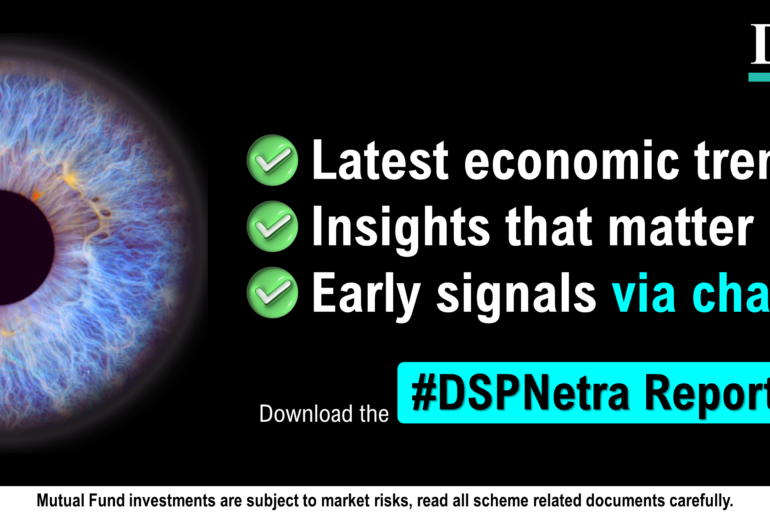Last Updated on Feb 1, 2024 by Anjali Chourasiya
Despite global challenges in 2023, India strongly navigated them and is poised to maintain its position as the world’s fastest-growing major economy. This is attributed to increasing demand, controlled inflation, a steady interest rate environment, and solid foreign exchange reserves. The sectors that we believe will perform well in 2024 are ‘Capital Goods and Financial Services’.
There has been huge buying by Foreign Institutional Investors in the sector in the last 1 yr, especially in the last 3 months. As a result, the inflows have amounted to over Rs. 1,00,000 cr. in both sectors over the last 1 year.
Let’s peek into the capital goods sector.
The government has already set the ball rolling by undertaking long-term capex across key areas such as transmission, clean energy, railways, and defence indigenisation until FY 2030, providing a strong addressable market for capital goods companies. Private consumption in India had witnessed a strong surge, fuelling a boost in production across sectors.
The India Composite Purchasing Managers’ Index (PMI), initially reported by HSBC and compiled by S&P Global, increased to 61.0 this month. This marks the highest level since September, surpassing the final reading of 58.5 in December. The index has been consistently above the 50-mark, signifying expansion, for the 30th consecutive month.
The current focus on ‘Make in India’ has led to an enhanced emphasis on strengthening manufacturing capabilities, which has brought the spotlight to the capital goods sector. Currently, the sector contributes 12% of the total manufacturing output, and in turn, the manufacturing sector contributes around 17% to the country’s GDP. The other factor driving this sector is the robust order book. For example, Hindustan Aeronautics’ order book of over Rs 80,000 crore or Engineers India’s orders have grown from Rs. 1,500 cr. to over Rs. 4,500 cr. in the past two years to drive home the point.
This increased optimism has been reflected in the stock prices of capital goods as well, with small-cap stocks like Titagarh Rail systems delivering a return of over 350% in the last 1 yr, and even in the large-cap space, we see Hindustan Aeronautics delivering over a 100% return in the last 1 yr.
Dynamics of the financial services sector
Coming to the financial services over the past few years! Public sector banks have transformed themselves into better and more sustainable franchisees. Most PSU bank stocks recorded substantial gains in the calendar year 2023, leading their sectoral index, Nifty PSU Bank, to significantly outperform the benchmark index, Nifty 50. The Nifty PSU Bank index jumped 31% in the year 2023. Sustained credit growth, significant improvement in asset quality, and stable to higher margins drove the robust earnings performance of state-owned banks and, subsequently, the share prices.
Most banks are confident that the current double-digit credit growth will be sustained in 2024 due to a resilient domestic economy and a gradual uptick in demand from rural areas.
But what about NBFCs? The growing importance of the NBFC sector in the Indian financial system is reflected in the consistent rise of NBFCs’ credit as a proportion to GDP. As of 2023, the NBFC sector has reached an impressive size of US$326 bn, expanding its influence in the financial domain. The growth can be attributed to a substantial increase in demand from Micro, Small and Medium Enterprises (MSMEs), which face challenges in obtaining loans from traditional banks. The government’s commitment to promoting financial inclusion through initiatives like Pradhan Mantri Jan Dhan Yojna (PMJDY) and Stand-up India has further elevated the importance of NBFCs.
Large-cap NBFCs like Shriram Finance have delivered over 90% returns in the last year, while state-run financial institutions like PFC and REC have delivered over 250% returns.
Despite these heightened returns, these stocks are still available at a lower valuation. For example, PFC is still trading at a PE of 8, while in capital goods, we see Hindustan Aeronautics still trading at a PE of 33, suggesting more upside. Even Public Sector banks like Punjab National Bank are still trading at near 16 PE valuation, while private bank heavyweight ICICI Bank is trading at a 17 PE. So, valuation-wise, these two sectors are primed for further upside.
Disclaimers
Investments in the securities market are subject to market risks. Read all the related documents carefully before investing. Registration granted by SEBI, membership of BASL and certification from NISM in no way guarantee the performance of the intermediary or provide any assurance of returns to investors. The content in these posts/articles is for informational and educational purposes only and should not be construed as professional financial advice nor to be construed as an offer to buy/sell or the solicitation of an offer to buy/sell any security or financial products. Users must make their own investment decisions based on their specific investment objective and financial position and use such independent advisors as they believe necessary.
Disclosures
The research and reports express our opinions, which we have based upon generally available public information, field research, inferences and deductions through due diligence and analytical process. To the best of our ability and belief, all information contained here is accurate and reliable and has been obtained from public sources we believe to be accurate and reliable.
- Will Capital Goods and Financial Services See an Uptrend in 2024? - Feb 1, 2024
- Will PSU Stocks Be the Top Investment Theme for 2024? - Jan 30, 2024



